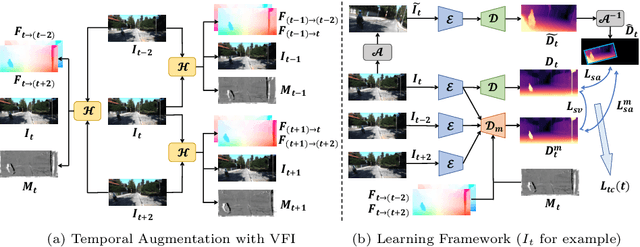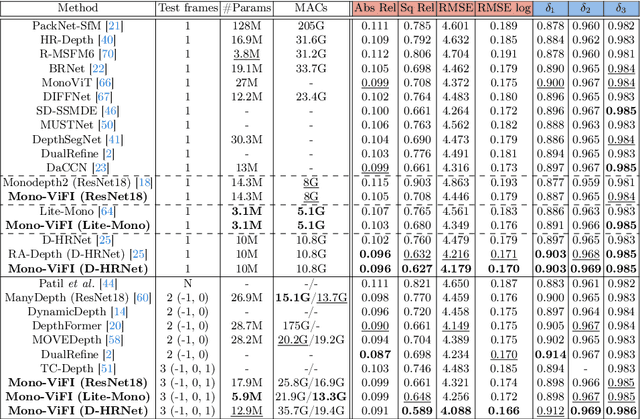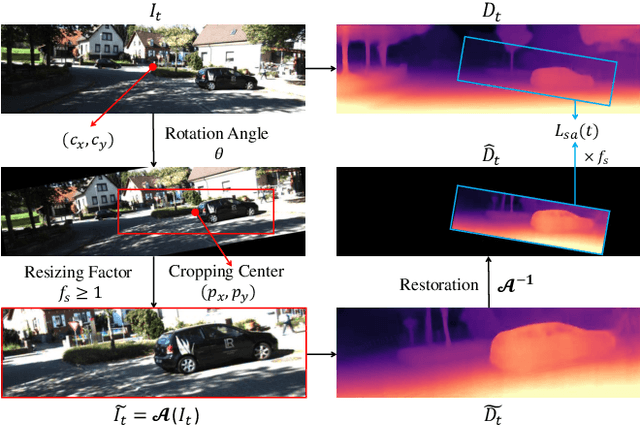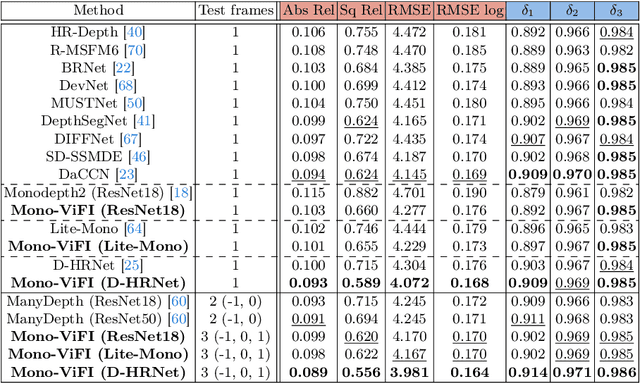Zerong Wang
DepthMaster: Taming Diffusion Models for Monocular Depth Estimation
Jan 05, 2025



Abstract:Monocular depth estimation within the diffusion-denoising paradigm demonstrates impressive generalization ability but suffers from low inference speed. Recent methods adopt a single-step deterministic paradigm to improve inference efficiency while maintaining comparable performance. However, they overlook the gap between generative and discriminative features, leading to suboptimal results. In this work, we propose DepthMaster, a single-step diffusion model designed to adapt generative features for the discriminative depth estimation task. First, to mitigate overfitting to texture details introduced by generative features, we propose a Feature Alignment module, which incorporates high-quality semantic features to enhance the denoising network's representation capability. Second, to address the lack of fine-grained details in the single-step deterministic framework, we propose a Fourier Enhancement module to adaptively balance low-frequency structure and high-frequency details. We adopt a two-stage training strategy to fully leverage the potential of the two modules. In the first stage, we focus on learning the global scene structure with the Feature Alignment module, while in the second stage, we exploit the Fourier Enhancement module to improve the visual quality. Through these efforts, our model achieves state-of-the-art performance in terms of generalization and detail preservation, outperforming other diffusion-based methods across various datasets. Our project page can be found at https://indu1ge.github.io/DepthMaster_page.
Mono-ViFI: A Unified Learning Framework for Self-supervised Single- and Multi-frame Monocular Depth Estimation
Jul 19, 2024



Abstract:Self-supervised monocular depth estimation has gathered notable interest since it can liberate training from dependency on depth annotations. In monocular video training case, recent methods only conduct view synthesis between existing camera views, leading to insufficient guidance. To tackle this, we try to synthesize more virtual camera views by flow-based video frame interpolation (VFI), termed as temporal augmentation. For multi-frame inference, to sidestep the problem of dynamic objects encountered by explicit geometry-based methods like ManyDepth, we return to the feature fusion paradigm and design a VFI-assisted multi-frame fusion module to align and aggregate multi-frame features, using motion and occlusion information obtained by the flow-based VFI model. Finally, we construct a unified self-supervised learning framework, named Mono-ViFI, to bilaterally connect single- and multi-frame depth. In this framework, spatial data augmentation through image affine transformation is incorporated for data diversity, along with a triplet depth consistency loss for regularization. The single- and multi-frame models can share weights, making our framework compact and memory-efficient. Extensive experiments demonstrate that our method can bring significant improvements to current advanced architectures. Source code is available at https://github.com/LiuJF1226/Mono-ViFI.
 Add to Chrome
Add to Chrome Add to Firefox
Add to Firefox Add to Edge
Add to Edge